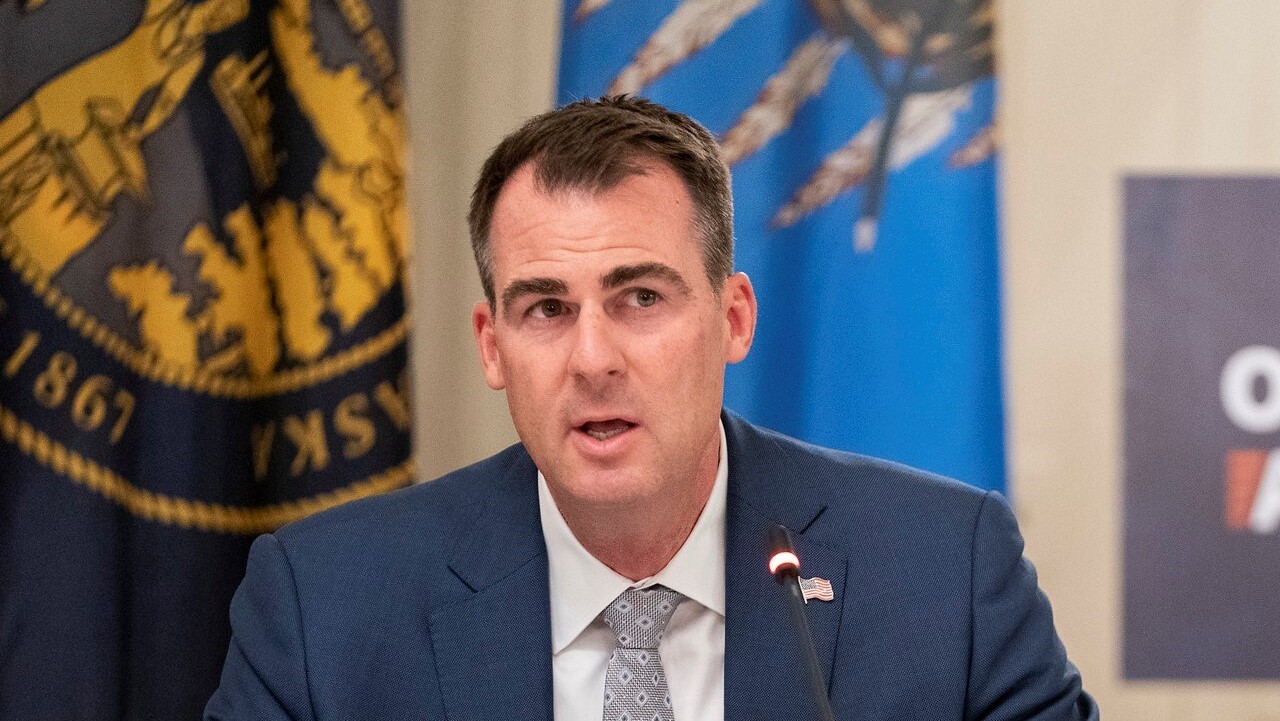Bowing to intense political pressure, Oklahoma’s Kevin Stitt, the Republican governor of one of the nation’s reddest states, commuted on Thursday the death sentence of convicted murderer Julius Jones. Stitt’s commutation of Jones, who was convicted for a first-degree carjacking murder in one of the most reliably pro-death penalty states, is but the latest troubling data pointing toward the possible ultimate abolition of the death penalty in America.
In 2020, former President Donald Trump directed then-Attorney General William Barr to resume federal executions after a 17-year hiatus. From July 2020 through January 2021, the Trump-led Department of Justice oversaw 13 executions. The first to be executed during that stretch, Daniel Lewis Lee, robbed a family and, as the Justice Department’s website recounted at the time, “covered their heads with plastic bags, sealed the bags with duct tape, weighed down each victim with rocks, and threw the family of three into the Illinois bayou.” The final man executed, Dustin Higgs, was convicted of directing the murders of three women in a wildlife refuge. He died unrepentant.
But this July, President Joe Biden ordered Attorney General Merrick Garland to once again pause federal executions. “The Department of Justice must ensure that everyone in the federal criminal justice system is not only afforded the rights guaranteed by the Constitution and laws of the United States, but is also treated fairly and humanely,” Garland said at the time. Innocent unborn children, of course, need not apply.
Since then, Biden’s Justice Department has argued to reinstate the death sentence for 2013 Boston Marathon bomber Dzhokhar Tsarnaev, who represents the paradigmatic case for capital punishment. But it defies common sense to think Tsarnaev could actually meet his Maker under Uncle Joe. In June, as the administration unveiled its plan to resume the federal execution moratorium, White House spokesperson Andrew Bates said Biden believes the Justice Department should “not carry out execution.” Bates added that Biden “has made clear that he has deep concerns about whether capital punishment is consistent with the values that are fundamental to our sense of justice and fairness.” Simply put, there is no world in which the Biden-led Justice Department crosses the president on such a politically sensitive issue.
We know for certain that some on the U.S. Supreme Court agree with Biden. In the 2015 case of Glossip v. Gross, a divided 5-4 Court upheld the constitutionality of using the drug midazolam in a “cocktail” to execute prisoners properly convicted of a capital offense. That many states — in the case of Glossip, Oklahoma — are forced to resort to using “cocktails” is itself troubling, evincing a concerted effort from pharmaceutical companies to avoid any possible complicity with the ultimate form of punishment. In his Glossip dissent, Justice Stephen Breyer, joined by the late Justice Ruth Bader Ginsburg, argued that the death penalty practice itself is unconstitutional. Justice Sonia Sotomayor filed a separate dissent, but it beggars belief that she and Justice Elena Kagan would not join Breyer if the question of the entire practice’s constitutionality were squarely teed up for the Court.
The death penalty remains popular, broadly speaking: In 2020, Gallup reported that Americans favored maintaining the death penalty for convicted murderers by a 55% to 43% margin. But that support has fallen a long way from the 80% to 16% margin Gallup found on the same question back in 1994. Moreover, it is unfortunate that the death penalty is now only spoken of in the context of convicted murderers. Even child rapists are no longer eligible for capital punishment, thanks to the Court’s deeply misguided 2008 decision, Kennedy v. Louisiana.
For all of the hifalutin, lofty rhetoric liberals invariably spew when it comes to the purported need to erect insurmountable guardrails around capital punishment, the fact remains that it is our law and our long-standing tradition that the worst of the worst in society should face the ultimate punishment. And that tradition is morally sound, rooted in Leviticus 24:19-20: “And a man who inflicts an injury upon his fellow man just as he did, so shall be done to him (namely,) fracture for fracture, eye for eye, tooth for tooth. Just as he inflicted an injury upon a person, so shall it be inflicted upon him.” Where is the left’s compassion for the victims of the worst crimes known to mankind?
There are some crimes for which even life imprisonment without parole simply does not suffice. If the classical definition of justice is to reward good and punish evil, then there is no more quintessentially just act than to execute murderers. Hopefully, Stitt’s commutation of Jones does not further take America down the wrong — and unjust — path.
Josh Hammer is opinion editor of Newsweek, a research fellow with the Edmund Burke Foundation, counsel and policy advisor for the Internet Accountability Project, a syndicated columnist through Creators and a contributing editor for Anchoring Truths. A frequent pundit and essayist on political, legal and cultural issues, Josh is a constitutional attorney by training and the co-host of two podcasts: Newsweek's "The Debate" and the Edmund Burke Foundation's "NatCon Squad."
An outspoken conservative, Josh opines on conservative intellectual trends, contemporary domestic and foreign policy debates, constitutional and legal issues, and the intersection of law, politics and culture. He has been published by many leading outlets, including the Los Angeles Times, the New York Post, Newsweek, National Affairs, American Affairs, The National Interest, National Review, City Journal, First Things, Public Discourse, Law & Liberty, Tablet Magazine, Deseret Magazine, The Spectator, The American Conservative, The American Mind, American Greatness, American Compass, Anchoring Truths, Townhall, The Epoch Times, The Daily Wire, Fortune, Fox Business, Pairagraph, The Jerusalem Post, The Times of Israel, The Forward, Jewish Telegraphic Agency and the Jewish Journal. He has had formal legal scholarship published by the Harvard Journal of Law & Public Policy and the University of St. Thomas Law Journal.
Josh is a college campus speaker through Intercollegiate Studies Institute and Young America's Foundation, as well as a law school campus speaker through the Federalist Society. Prior to Newsweek and the Daily Wire, where he was an editor, Josh worked at a large law firm and clerked for a judge on the U.S. Court of Appeals for the Fifth Circuit. Josh has also served as a John Marshall Fellow with the Claremont Institute.
Josh graduated from Duke University, where he majored in economics, and from the University of Chicago Law School. He lives in Miami, but remains an active member of the State Bar of Texas.






